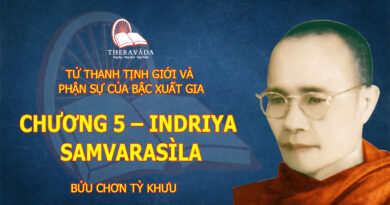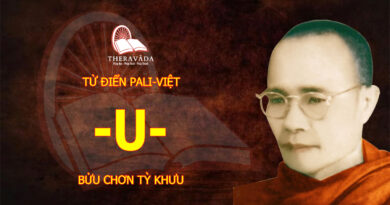Q&a 10 – The Art Of Living – S.n. Goenka
Questions and Answers
QUESTION: May we tell others about the meditation?
N. GOENKA: Certainly. There is no secrecy in Dhamma. You may tell anyone about what you have done here. But guiding people to practise is something totally different, which should not be done at this stage. Wait until you are firmly established in the technique and trained to guide others. If someone whom you tell about Vipassana is interested in practising, it, advise that person to come to a course. At least the first experience of Vipassana must be in an organized ten-day course, under the guidance of a qualified teacher. After that one can practise on one’s own.
I practise yoga. How can I integrate this with Vipassana?
Here at a course, yoga is not permitted because it will disturb others by drawing their attention. But after you return home, you may practise both Vipassana and yoga—that is, the physical exercises of yogic postures and breath control. Yoga is very beneficial for physical health. You may even combine it with Vipassana. For example, you assume a posture and then observe sensations throughout the body; this will give still greater benefit than the practice of yoga alone. But the yogic meditation techniques using mantra and visualization are totally opposed to Vipassana. Do not mix them with this technique.
How about the different yogic breathing exercises?
They are helpful as physical exercise, but do not mix these techniques with ānāpāna. In ānāpāna you must observe natural breath at it is, without controlling it. Practise breath control as a physical exercise, and practise ānāpāna for meditation.
Am I—is not this bubble—becoming attached to enlightenment?
If so, you are running in the opposite direction from it. You can never experience enlightenment so long as you have attachments. Simply understand what enlightenment is. Then keep on observing the reality of this moment, and let enlightenment come. If it does not come, don’t be upset. You just do your job and leave the result to Dhamma. If you work in this way, you are not attached to enlightenment and it will certainly come.
Then I meditate just to do my work?
Yes. It is your responsibility to cleanse your own mind. Take it as a responsibility, but do it without attachment.
It’s not to achieve anything?
No. Whatever comes will come by itself. Let it happen naturally.
What is your feeling about teaching Dhamma to children?
The best time for that is before birth. During pregnancy the mother should practise Vipassana, so that the child also receives it and is born a Dhamma child. But if you already have children, you can still share Dhamma with them. For example, as the conclusion of your practice of Vipassana you have learned the technique of mettā-bhāvanā, sharing your peace and harmony with others. If your children are very young, direct your mettā to them after every meditation and at their bedtime; in this way they also benefit from your practice of Dhamma. And when they are older, explain a little about Dhamma to them in a way that they can understand and accept. If they can understand a little more, then teach them to practise ānāpāna for a few minutes. Don’t pressure the children in any way. Just let them sit with you, observe their breath for a few minutes, and then go and play. The meditation will be like play for them; they will enjoy doing it. And most important is that you must live a healthy Dhamma life yourself, you must set a good example for your children. In your home you must establish a peaceful and harmonious atmosphere which will help them grow into healthy and happy people. This is the best thing you can do for your children.
Thank you very much for the wonderful Dhamma.
Thank Dhamma! Dhamma is great. I am only a vehicle. And also thank yourself. You worked hard, so you grasped the technique. A teacher keeps talking, talking, but if you do not work, you don’t get anything. Be happy, and work hard, work hard!
Bài viết này được trích từ cuốn sách The Art Of Living – Thiền Sư S.N.Goenka và William Hart.



